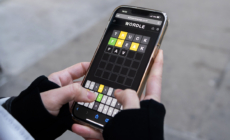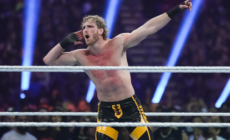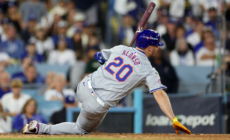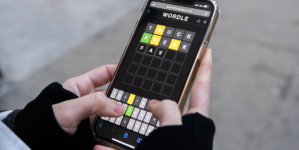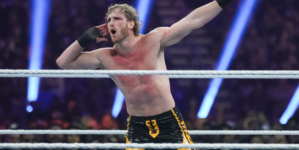-
Costco Guys More Popular Than Roman Reigns, Says Former AEW Superstar - 11 mins ago
-
Organized Looting Throws Gaza Deeper Into Chaos - 22 mins ago
-
Today’s ‘Wordle’ #1,283 Answers, Hints and Clues for Monday, December 23 - 46 mins ago
-
Artists We Lost in 2024, in Their Words - about 1 hour ago
-
John Cena vs Logan Paul ‘On The Table’ For WrestleMania 41: Report - about 1 hour ago
-
Ron Eliran, Israeli ”Ambassador of Song,” Has a Bar Mitzvah at 90 - 2 hours ago
-
Phillies Predicted To Cut Ties With Trade Acquistion Austin Hays - 2 hours ago
-
Mets Likely To Sign Pete Alonso Amid Depleted First Base Market - 3 hours ago
-
Trump Picks Callista Gingrich for Ambassador to Switzerland - 3 hours ago
-
NASCAR Cup Series Team Confirms 2025 Daytona 500 Entry Plans - 3 hours ago
Mark Cuban’s Post About Elon Musk’s $1 Million Prizes Goes Viral
Billionaire entrepreneur Mark Cuban has sparked widespread debate on social media with a post questioning the legality of Elon Musk’s latest political initiative.
The controversy surrounds Musk’s recently announced plan to offer daily $1 million prizes to swing state voters who sign a petition supporting the First and Second Amendments of the U.S. Constitution.
Musk, the CEO of X and a vocal supporter of former President Donald Trump in the 2024 presidential election against Vice President Kamala Harris, unveiled this unprecedented voter engagement strategy during a town hall event in Harrisburg, Pennsylvania.

According to Musk, his America PAC (Political Action Committee) would provide registered voters in key swing states the opportunity to win $1 million daily until the November 5 election.
To enter, registered voters must sign a statement reading, “The First and Second Amendments guarantee freedom of speech and the right to bear arms.”
Musk announced the first winner, John Dreher, at the Harrisburg event. The next two winners will be from Pennsylvania, after which the contest opens to registered voters in Georgia, Nevada, Arizona, Michigan, Wisconsin, and North Carolina.
Nate Silver’s FiveThirtyEight aggregator, which estimates the presidential candidates’ polling averages by analyzing multiple surveys, has Trump and Harris tied in Pennsylvania at 47.8 percent as of Sunday afternoon.
The controversy first gained traction online when Cuban shared a post by journalist and Emeritus scholar Norman Ornstein on X who drew attention to Musk’s plan: “Merrick Garland justice department needs to step in immediately.”
Cuban reposted the message and tagged Pennsylvania Democratic Governor Josh Shapiro, which garnered 1.4 million views and 3,400 comments, saying: “I’m pretty sure, that while it may or may not violate voting laws, it may violate gaming laws in Pennsylvania,” he wrote on X.
To bolster his argument, the tech entrepreneur included a screenshot from the Pennsylvania Department of Revenue website, which states: “In Pennsylvania, all forms of gambling are illegal unless specifically authorized by law.”
The list also includes other legal forms of gambling in the state, including the Pennsylvania Lottery, bingo, slots, table games, and small games of chance.
During a Sunday interview on NBC’s “Meet The Press” Gov. Shapiro expressed concerns about Musk’s latest voter venture, stating, “I think it’s something that law enforcement could take a look at.”
The controversial plan has also drawn attention from legal experts in the field of election law. The Associated Press reports that election law experts are raising concerns about the legality of Musk’s giveaway.
Campaign finance lawyer Brendan Fischer suggests the contest may be approaching a legal boundary by requiring voter registration for prize eligibility. Fischer stated in an email to AP, “There would be few doubts about the legality if every Pennsylvania-based petition signer were eligible, but conditioning the payments on registration arguably violates the law.”
UCLA Law School professor Rick Hasen points to laws prohibiting payment for voter registration or voting. “If all he was doing was paying people to sign the petition, that might be a waste of money. But there’s nothing illegal about it,” he said in an interview.
“The problem is that the only people eligible to participate in this giveaway are the people who are registered to vote. And that makes it illegal.”
Thanks for the folks referring me to sweepstakes law. I’ll defer to lawyers. But if he follows applicable law, got to admit it looks like it could be legal
That doesn’t account for FEC laws. https://t.co/dhf4CQKt3Q
— Mark Cuban (@mcuban) October 20, 2024
In a follow-up post, Cuban later said he would defer to professional legal advice on the matter, “Thanks for the folks referring me to sweepstakes law. I’ll defer to lawyers. But if he follows applicable law, got to admit it looks like it could be legal.”
He added a caveat: “That doesn’t account for FEC laws.”
Source link




